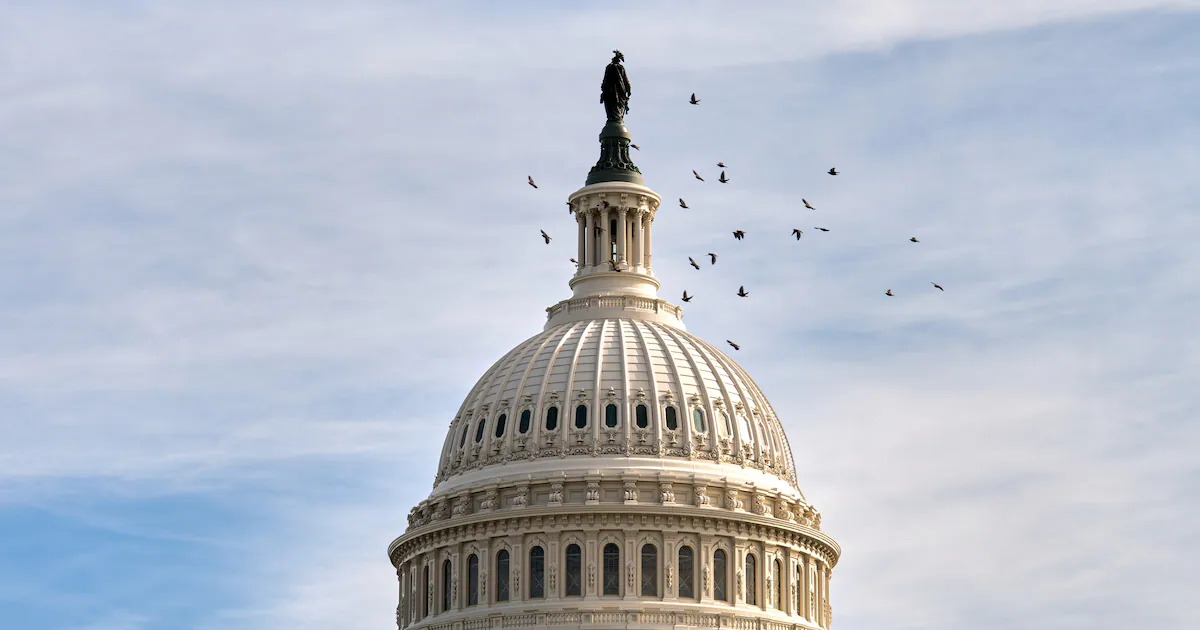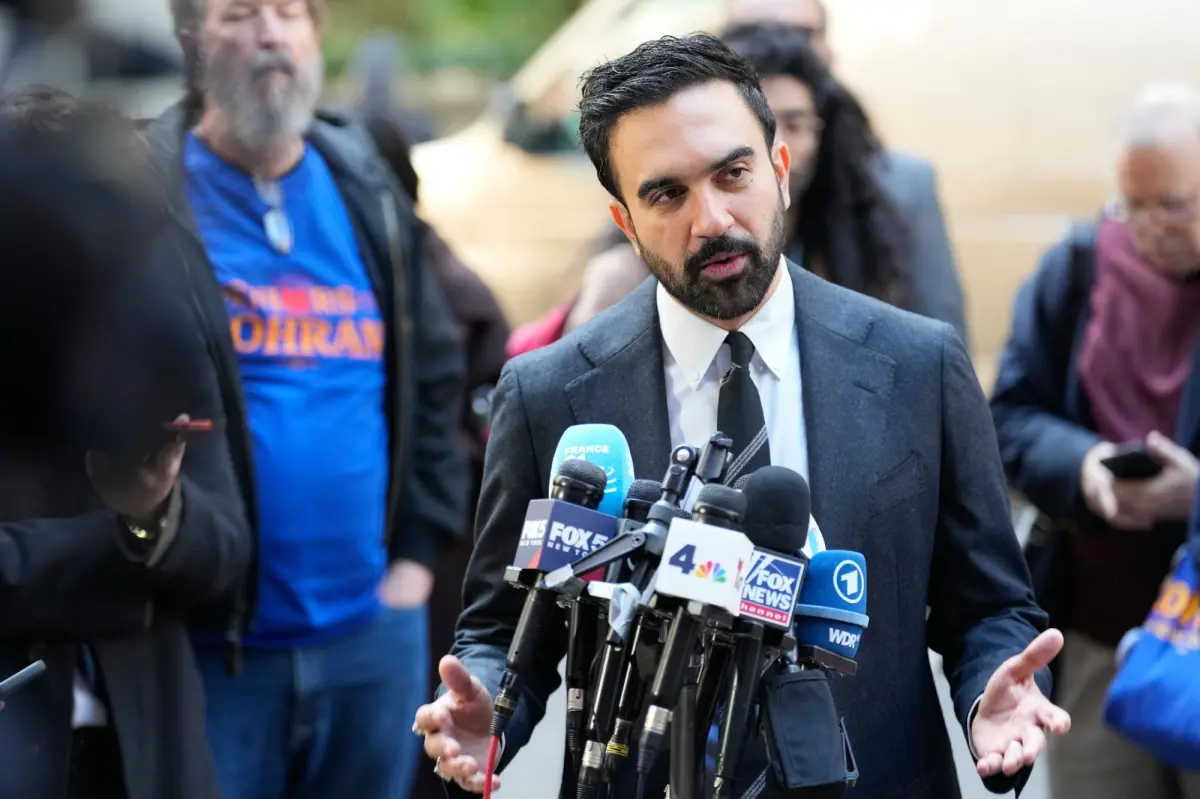Copyright Salt Lake City Deseret News

WASHINGTON — The Senate appears to be closing in on an agreement to begin drafting a new resolution to reopen the government while also advancing a slate of full-year appropriations bills — offering a glimpse of hope that the record-long shutdown will soon come to an end. Senate Majority Leader John Thune, R-S.D., told reporters on Tuesday he is hopeful a deal is just around the corner that could garner enough bipartisan support to pass the Senate and end the 35-day closure. That deal would likely include a new date for the stopgap spending bill, a package of three separate appropriations bills, and a standalone vote to extend enhanced Obamacare credits at a later date, according to Thune. “There are people who realize this has gone on long enough and there’s been enough pain inflicted on the American people, and it’s time to end it,” Thune said. Several Republican and Democratic senators confirmed those details are being floated as a possible off-ramp, and many offered optimism for the first time in weeks that an end to the shutdown could be within reach. However, details of the package are not yet finalized, and there are still a number of outstanding disagreements that must be resolved before they can put pen to paper. New spending extension The current spending resolution under consideration would fund federal agencies until Nov. 21. That bill passed the House on Sept. 19 but has since failed in the Senate more than a dozen times due to Democratic opposition. Now, Republican leaders are acknowledging they’ll need a new date written into the stopgap bill, conceding the three-week period left in the seven-week CR is no longer available. “That date’s lost,” Thune said of the mid-November timeline. But senators have not yet agreed on a new date. And it’s resulted in intra-party disagreements. Some Republicans, such as top appropriator Susan Collins, R-Maine, have argued they should punt the deadline to Dec. 19, warning that a longer-term resolution would increase the chances the spending bills won’t get done. Instead, Collins has argued the shorter date would keep pressure on negotiators to find an agreement before the end of the year. But other GOP lawmakers have rejected that proposal. Instead, they want a date after the holiday season. “I don’t want another Christmas omnibus,” Sen. Rick Scott, R-Fla., told reporters on Monday. An omnibus package refers to a massive bill that combines all 12 of the yearlong appropriations bills but has been opposed by Republicans in years past because it often contains unrelated policy provisions that are quietly tucked in by negotiators to garner enough support for the package. The thousand-page bill is typically finished days, if not hours, before the deadline and pushed through without many lawmakers lamenting they didn’t get a chance to read its full contents. House Speaker Mike Johnson, R-La., ruled out a December date for that very reason, arguing it would not pass the lower chamber because lawmakers have “PTSD about Christmas omnibus spending bills.” “We don’t want to do that, it gets too close and we don’t want to have that risk,” Johnson said on Tuesday. “We’re not doing it.” Meanwhile, conservatives in the House Freedom Caucus are demanding the resolution to last through the end of the fiscal year — a stance that has been backed by the White House but is not likely to garner enough support in Congress. Vote on Obamacare subsidies One of Democrats’ main demands in the shutdown fight has been to guarantee an extension of certain Obamacare subsidies that are set to expire at the end of this year. If those lapse, millions of Americans could see their health care premiums go up. The tax subsidies Democrats are demanding to extend permanently are enhanced tax credits that were created in 2021 during the COVID-19 pandemic and approved in the American Rescue Plan of 2021 under former President Joe Biden. The credits were given an expiration date, but that was later extended to the end of 2025 through the Inflation Reduction Act in 2022. Republican leaders are offering a vote to extend the subsidies for one year to buy time for lawmakers to negotiate broader reforms. But that vote would be subject to the 60-vote filibuster threshold, Thune said, meaning at least 13 Republicans would need to get on board. “Honestly, think about what the Democrats are asking us to do here,” Thune said. “They’re saying it’s going to take 60 just to fund the government, but we want to have a vote on a massive sort of piece of health care legislation at 51.” That’s angered a number of Democrats who say they want a guaranteed extension of the subsidies rather than a gamble that Republicans will shoot down the standalone bill later this year. “I’m interested in the negotiation, but a negotiation that ends in a piece of legislation being passed,” Sen. Chris Murphy, D-Conn., said on Tuesday. “An agreement to take a vote that Republicans are guaranteeing will fail doesn’t sound like an outcome that helps regular Americans.” But some moderate Republicans have indicated they could be open to supporting the ACA extension, especially if it leads to deeper reforms. Sen. John Curtis, R-Utah, told the Deseret News he would be “open to the conversation” of temporarily extending ACA subsidies, but would need to see some kind of reform in a permanent solution. “I think what myself and a lot of Republicans are concerned about is if we’re just renewing them, that means we’re renewing zero premiums for people at 400% poverty,” Curtis said. “We all know there’s a lot of fraud in the system. So if we can have a conversation about the right people getting the right help, you bet” we can talk about it. Paging the House But even if the Senate can come to an agreement on something within the next week or so, the newly formed deal will need to be enough to pass the Republican-controlled House. And some members of the House Freedom Caucus are already indicating they aren’t happy with what they’re seeing. When asked if he would support the resolution-appropriations-ACA package, Rep. Ralph Norman, R-S.C., told the Deseret News “absolutely not.” “Hell no,” added Rep. Eric Burlison, R-Mo., another member of the caucus. But there could be enough bipartisan support to get something through, and there appears to be an appetite among centrist lawmakers to find a solution to the Obamacare tax credits. A bipartisan group led by Reps. Don Bacon, R-Neb., Tom Suozzi, D-N.Y., Jeff Hurd, R-Colo., and Josh Gottheimer D-N.J., released a statement earlier this week backing a temporary extension of the subsidies and outlining a number of provisions they’d want to see in a more permanent solution, such as implementing an income cap. “We may not agree on every ideal outcome, but we’ve identified a fair, reasonable path forward on the future of the Affordable Care Act’s Enhanced Premium Tax Credits. Compromise isn’t rocket science and it shouldn’t be treated like a weakness,” the group said in a statement. “Our hope is that this shared statement of principles will inspire bipartisan collaboration across Washington and help get Congress back to work for the American people.” Meanwhile, House Majority Leader Steve Scalise, R-LA., signaled he’d be open to the three-tiered proposal to reopen the government, but warned any agreement would be “dependent on the Democrats finally being willing to end their tantrum, stop holding the American people hostage.”



